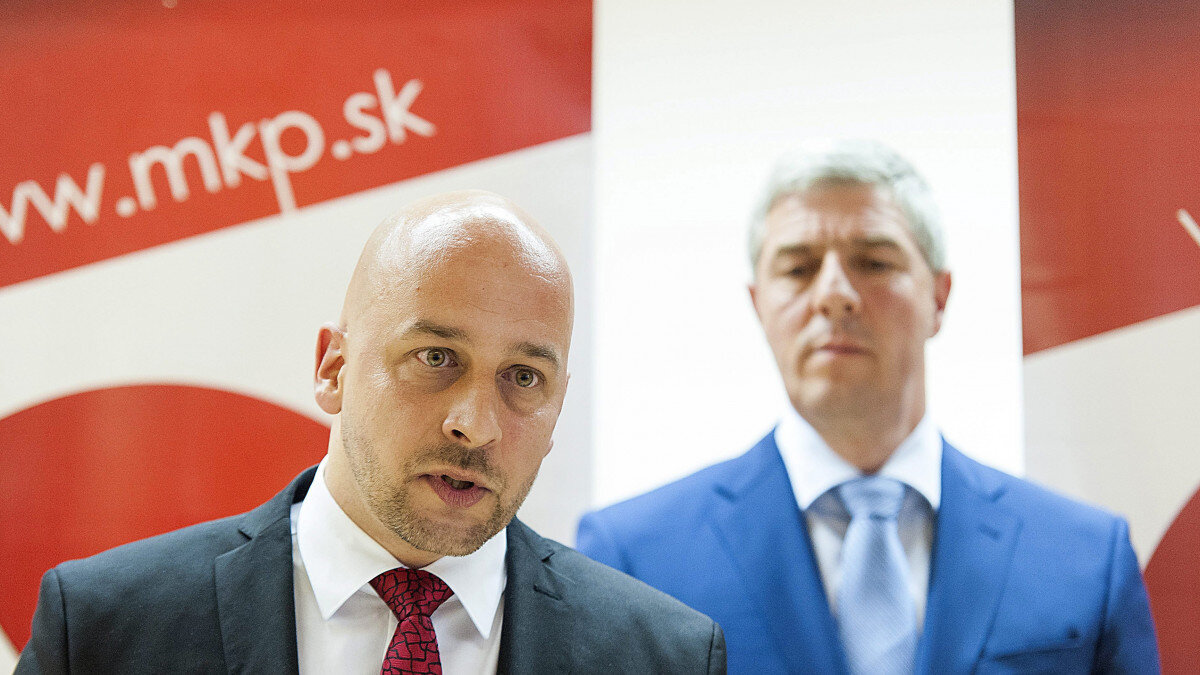A Hungarian perspective on the upcoming elections
Photo credit: felvidek.ma (https://felvidek.ma/2019/07/ha-az-mkp-es-a-most-hid-megegyezik-az-mkdsz-csatlakozik-hozzajuk/)
Dániel Cséfalvay / February 18, 2020
( 5 min read )
Is it alright for Hungarians to vote for Slovak parties?
If you already decided you will not read the full article, the short answer is – yes. The upcoming elections on the 29th of February are a long-awaited event looking promisingly with a probability of bringing actual change to Slovakia.
We entered the two weeks of poll-moratorium and despite the dangerous rise in support for the openly fascist party Kotlebists – ĽSNS, the last available opinion poll shows steady support for the democratic parties who bring dedicated professionals and tangible solutions.
So what options are the members of the Hungarian minority offered in these elections?
After a series of promises about constructing an all-Hungarian list of candidates to make sure they are represented, the deal fell short of actually happening and the approximate 8-9% of potential Hungarian votes are divided between Most-Híd (Bridge) and Magyar Közösségi Összefogás (The Alliance of the Hungarian Community) keeping them both under the threshold of 5%, essentially leaving the Hungarians without representation.
It is an extremely sensitive topic to write about since many close Slovak friends of mine ask me, why do we have to keep choosing Hungarian parties, why can’t we also just enjoy the spectrum of democratic parties?
A couple of weeks ago in a discussion at the King’s College London, Martin M. Šimečka, offered his perspective to the young Slovak and Czech students about the upcoming elections and to this question he answered: “No one will ever understand and care about Hungarians or minorities and their issues as themselves, we also have to be understanding of that.”
It must also be said that the minority politics of Hungarians in the region, will never become solely issue-based politics, at least from the Slovak perspective, since most issues at their core are indeed identity-based. This teetering on the side of identities and issues makes it remarkably hard for anyone else to fully comprehend why is the decision so difficult.
For instance, the policy evaluation of closing smaller schools might highlight the efficiency of joining these educational facilities but it might not include the fact that it would predominantly affect the schools in the Hungarian regions, where they are vital for the community.
History has shown that the Slovak-Hungarian relations are fragile and if the grievances are not approached carefully it can easily become confronting and even hostile. Growing up during the notorious Jan Slota era, I personally experienced how comments fuelling hate can easily be translated to every-day conversations, even between children.
If a political party applies a more nationalistic narrative, it is the minorities, who are most probably affected by the consequences. The Hungarians are aware that this is a lasting threat, but it would be one-sided to position us as the only victims. The mutual public demonstrations of disrespect such as booing during the national anthem at football games is a sign that extreme cases are found on each side.
Not long ago the new version of a Slovak slang-dictionary included the word “Hungarian” as a pejorative metaphor for dumb and idiotic people. It is not too hard to give impetus to these narratives, while they can last and impact the lives of minorities.
This should also serve as a reminder for those Hungarians who, proud of their cognitive dissonance, would be happy to support a fascist party that offers no solutions and expertise, but rides the wave of extremist populism and hate. For those Hungarians, all I can ask is... after the narrative shifts from Romas and refugees, who do you honestly think will be targeted next?
What if there will be no representation?
In order to understand this, it must be considered how disappointed the 8-9% percent of the voters are after the political developments of the last three years, especially after the murder of the investigative journalist Jan Kuciak. The reactions of the parties to these events were profoundly unsuccessful in repairing their reputation and their subsequent failure to establish cooperation was equally disturbing. This is particularly worrying during times when the growing influence of Orbán Viktor’s nationalistic narrative is getting more visible in the southern region.
It must also be considered that as obnoxious as this sounds, it is a large step out of the Hungarian comfort zone to place trust in others, who might not comprehend the Hungarian reality in its entirety. After the symbolic gesture during the inauguration speech of the president Zuzana Čaputová, the upcoming elections might just be the follow up in establishing mutual trust.
I do not know what will be the consequence of a likely scenario of no Hungarian representation, and albeit many close Hungarian friends reminding me that “a Hungarian should only vote for Hungarian parties”, I am ready to take a different decision after continuous disappointments with the usual parties.
I currently see potential in the remaining democratic parties, I align politically with many of their offered policies and solutions and I am ready to vote for a democratic Slovak party.
Disclaimer
The author of the article is not aiming to discourage anyone from voting for the Hungarian parties, the article aims to explain his own views on the upcoming elections from the perspective of the Hungarian minority. The author is not related to any politician or public figure.




